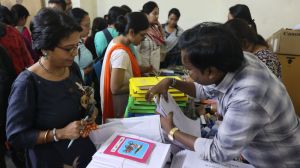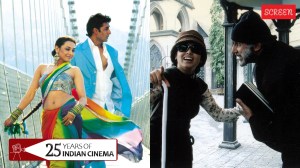Facts of the matter
Why the opposition needs to tone down its tirade on votes-for-cash WikiLeaks cable?
It is far from certain that Prime Minister Manmohan Singhs statement in Lok Sabha will douse the political storm set off by the publication of a WikiLeaks cable on alleged buying of MPs in the July 22,2008 vote of confidence. On Thursday,The Hindu newspaper had reported on an American embassy cable to the US State Department,saying a Congress leaders aide has shown an employee chests of cash to secure that vote. This immensely titillating but,as the prime minister pointed out,unverified and also unverifiable,given the US governments refusal to authenticate or deny any cable in the WikiLeaks cache piece of information galvanised the opposition in Parliament,leading to disruptions and calls for the Congress-led UPA government to quit. Even as the PM rejected the charges outright,he noted that a parliamentary panel had gone into allegations of vote-buying in that motion of confidence. The oppositions immediate reaction was to announce it was moving a privilege motion against the PM.
The PM could have lingered longer on the nature of the US embassy communication,and used his stature to rise above partisanship to emphasise the dilemmas posed to politics in a free society by the ever freer movement and dissemination of information. Just as we have begun to debate whether putting out raw information,without subjecting what may be hearsay,loose talk,speculation or outright bravado to the rigours of reportage,can be termed journalism,so too must others in public life consider the quality of information they act upon,and how. Dr Singh is well-placed to counsel a sense of proportion bec-
ause all parties,including his Congress party,have used incomplete information sometimes in the form of sting operations or phone taps to bring Parliament and political discourse to an all-or-nothing paralysis. Politics in a free society like India needs to mature to handle the overload of information that new sources put out. It needs to rise to our democratic freedoms by learning how to process hearsay,gossip,and possibly valuable leads.
There is,of course,no question that the resonance the US embassy cable finds in Parliament is because of a back-story. That July day,the griminess of the occasion was emphasised by the appearance of wads of cash on the floor of Lok Sabha by three BJP MPs alleging it was money offered to buy their votes. Either way it was a scandal,whether their story was true or constructed. We still dont fully know,but the information American diplomats were relaying was,in fact,the stuff of unsubstantiated gossip at the time. Perhaps the current WikiLeaks storm is a timely reminder that in a world of free-flowing information institutions will retain their majesty only by opening themselves in equal measure to scrutiny.



- 01
- 02
- 03
- 04
- 05




























